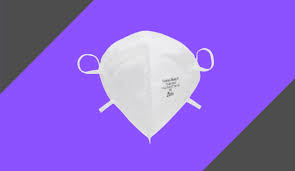As Omicron — the swift- spreading variant of SARs-CoV-2 — continues to affect people across the globe, the significance of wearing masks and maintaining social distancing becomes indeed more important. But there’s still confusion regarding the most effective masks against the contagion and its numerous variants. While some people still wear cloth masks, experts say that they may prove ineffective against filtering patches.
So, which mask is the stylish? Then’s what you need to know.
Why are cloth masks not effective?
A exploration paper published in PeerJ, which analysed 20 different types of cloth masks, plant that their severance sizes ranged from 80-500 micrometers as against the new coronavirus which is about0.12 micrometers. This meant that bitsy driblets can be gobbled through the voids or gaps near the nose and cheeks.
Agreed Dr Pritam Moon, adviser croaker, Wockhardt Hospital Mira Road, and said that cloth masks are effective only for larger patches. “ High-filtration masks, on the other hand, can help keep Omircron at bay when compared to cloth and surgical masks,” he said.
While surgical masks are better than cloth masks, they still warrant protection against the Omicron variant.
As per Dr Niranjan Patil, microbiology and molecular biology – head and biosafety officer, Metropolis Healthcare Ltd, “ A cloth mask alone may not be useful. It was being specified in the first surge for general public because there was a deficit of N95 masks for healthcare workers and lab professionals. A three- subcaste surgical mask and cloth mask, when used together, are effective rather of using them alone. As Omicron is largely transmittable, protection by cloth mask is missing and in fact, may contribute to its spread as it may give a false sense of security with reference to transmission and protection.”
The Ministry of Health and Family Welfare has said that N-95 mask/ respirator have sludge effectiveness of 95 per cent or further against particulate aerosols. The mask should be handed with expiration stopcock, should be disposable and fit for wide range of face sizes. It should accompany instrument from NIOSH or original instrument.
According to United States’FDA (Food and Drug Administration), an N95 mask “ is a respiratory defensive device designed to achieve a veritably close facial fit and veritably effective filtration of airborne patches”. Also, Centers for Disease Control and Prevention (CDC) said that KN95 masks are a cheaper volition to N95 masks, as long as they “ meet conditions analogous to those set by CDC’s National Institute for Occupational Safety and Health (NIOSH) for respirators”.
The Ministry’s revised guidelines for home insulation said a Covid-19 case should, at all times, use triadic subcaste medical mask. “ They should discard mask after eight hours of use or earlier if the mask becomes wet or visibly bemired. In the event of caregiver entering the room, both caregiver and case may rather consider using N-95 mask.
“ N95 masks will help to filter indeed minute patches. Don’t go for a mask that has a stopcock as it’ll not help in filtering the exhaled air if one is infected and not apprehensive of the same. If you’re using a surgical mask also double masking is essential. Make sure that the mask fits the face duly,” Dr Moon said.
According to American Conference of Governmental Industrial Hygienists, N95 masks are the stylish when it comes to offering maximum protection against the transmission of thevirus.However, it takes at least 2, If the infected person isn’t wearing a mask.5 hours to transmit the infection from one person to anotherperson.However, also the contagion takes 25 hours to transmit, If both are wearing N95 masks.
Dr Patil advised against using masks with reflections or exhalation faucets as they allow the undressed breath to escape. “ Either, people who have a condition or are taking specifics that weaken their vulnerable system may not be completely defended indeed if they’re completely vaccinated. They should continue to take all preventives recommended for unvaccinated people, including wearing a well- fitted mask, until advised else by their healthcareprovider.However, to maximise protection and help possible spreading of Covid-19 to others, wear a mask indoors and outside in public if you’re in an area of substantial or high transmission, If you’re completely vaccinated.
Wearing two masks together, N95 and a surgical mask under it, is the stylish way to cover yourself from the variant, said Dr Sanket Jain, pulmonologist adviser, Masina Hospital, Mumbai. “ N95 mask, in particular, can be reused, as they’re rated for their capability to filter a lot of dust. The mask won’t get impregnated indeed after many days of normal use, so it can be reused. After the use of N95 mask for a routine day, it’s to be kept away in a dust-free terrain for two-three days and also used again. Generally, there are numerous washable and applicable N95 masks available in the request, which can be washed with soap greasepaint and duly air dried for exercise,” said Dr Jain.
What about people who ca n’t wear N95 due to breathing issues?
“ A combination of three- subcaste surgical and a cloth mask is for someone with COPD, asthma or any other breathing difficulty issues who can not wear an N95 mask,” said Dr Patil.
According to Dr Rakesh Rajpurohit, MD, adviser pulmonologist and critical care drug at Jain Multi Specialty Hospital, Mira Road, while cloth mask wo n’t give complete protection, but if chosen duly and used rightly can offer some form of protection. “ It should be duly washed using detergents. It should cover the nose and mouth fully. It should be with a nose line, to help any air leaks. It should be of multiple subcaste, tightly woven, and of permeable fabric. One can check the fabric by holding against a source of light, if it fully blocks the light, it’s suitable,” said Dr Rajpurohit.

